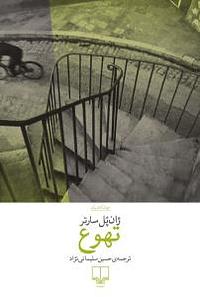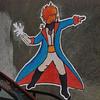Take a photo of a barcode or cover
adventurous
dark
emotional
inspiring
mysterious
reflective
slow-paced
reflective
Just wasn’t vibing with it. Was working with other books that hooked me a lot faster; the plot seemed like it would help ruminate on feelings of ennui but I just wasn’t hooked. 🤷🏼♂️
Just wasn't vibing with it, put me into a reading slump :/
challenging
dark
reflective
slow-paced
Plot or Character Driven:
Character
Strong character development:
Yes
Loveable characters:
Complicated
Diverse cast of characters:
No
Flaws of characters a main focus:
Yes
challenging
dark
emotional
sad
tense
slow-paced
Plot or Character Driven:
Character
Strong character development:
Complicated
Loveable characters:
No
Diverse cast of characters:
N/A
Flaws of characters a main focus:
Yes
dark
reflective
sad
medium-paced
Plot or Character Driven:
Character
Strong character development:
Complicated
Loveable characters:
No
Diverse cast of characters:
Yes
Flaws of characters a main focus:
Complicated
I don't know how much I think the ending follows everything that leads up to it, but this book has so many moments and scenes that are so vile and raw it's hard not to enjoy it and to be impacted.
The first of these (and probably the one that impacted me the most) is the scene where Doctor Roge calls a man an old crackpot. Starting out this scene, Roquentin describes a man who has truly lived; he's lucky, he's professional, he's earned all his wrinkles. However, as he contemplates the doctor's labelling of another man as a crackpot, the author strips away this importance and significance. No matter what the doctor has done with his life, he is not more than his own existence. Everything that has happened in this person's life has begun and ended in the abyss. The doctor thinks that he's learnt everything that he knows from life, but Roquentin questions that "Life has undertaken to think for [him]". Beyond Roquentins deconstruction of the self-important man he describes the man's existence in a raw and menacing manner. Rick Kenton realises that this man will die before long and that the man must know it. He says the man looks more like the corpse he's going to become every single day. The man is ultimately alone, without attainments, without any past, and to bear the sight of his own corpse in the mirror he convinces himself that the lessons of experience are engraved in it.
This is only one example of these sorts of scenes in the book however there's more throughout. For one, after meeting Anny, and right before parting ways, Roquentin catches a close look at her face. Suddenly it is transformed and becomes pale, old, and horrible. Roquentin realizes that she didn't put on that face deliberately, and that it is there in spite of her. Scenes can be gruesome, violent, and sticky. The reality of the world seeps through the book, and the nausea that Roquentin feels is visible through the pages.
Beyond it's slower start, and in my opinion, a slightly undeserved hopeful ending, this book is an extremely impactful story about existing in a meaningless world. The void is everywhere and we live in our memory, and maybe it's best for us to not forget that.
The first of these (and probably the one that impacted me the most) is the scene where Doctor Roge calls a man an old crackpot. Starting out this scene, Roquentin describes a man who has truly lived; he's lucky, he's professional, he's earned all his wrinkles. However, as he contemplates the doctor's labelling of another man as a crackpot, the author strips away this importance and significance. No matter what the doctor has done with his life, he is not more than his own existence. Everything that has happened in this person's life has begun and ended in the abyss. The doctor thinks that he's learnt everything that he knows from life, but Roquentin questions that "Life has undertaken to think for [him]". Beyond Roquentins deconstruction of the self-important man he describes the man's existence in a raw and menacing manner. Rick Kenton realises that this man will die before long and that the man must know it. He says the man looks more like the corpse he's going to become every single day. The man is ultimately alone, without attainments, without any past, and to bear the sight of his own corpse in the mirror he convinces himself that the lessons of experience are engraved in it.
This is only one example of these sorts of scenes in the book however there's more throughout. For one, after meeting Anny, and right before parting ways, Roquentin catches a close look at her face. Suddenly it is transformed and becomes pale, old, and horrible. Roquentin realizes that she didn't put on that face deliberately, and that it is there in spite of her. Scenes can be gruesome, violent, and sticky. The reality of the world seeps through the book, and the nausea that Roquentin feels is visible through the pages.
Beyond it's slower start, and in my opinion, a slightly undeserved hopeful ending, this book is an extremely impactful story about existing in a meaningless world. The void is everywhere and we live in our memory, and maybe it's best for us to not forget that.
Graphic: Gore, Pedophilia, Sexual assault, Suicide





